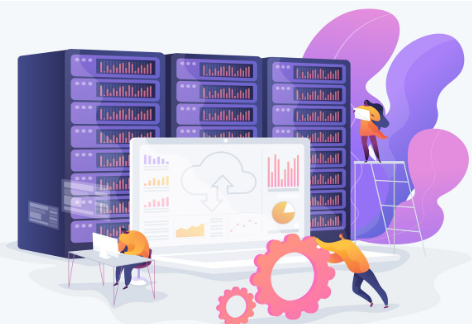Data is everything in the age of AI and social media. Petabytes of data is being generated everyday by social media platforms.
Now, someone is required to store, clean, manage, secure, transform the data to extract the insights out of it.
Here it comes the role of data engineering, so lets understand in detail about it first.
What is Data Engineering?
Data Engineering is an exciting and rapidly evolving field. It focuses on designing, building, and managing systems that allow for the collection, storage, and analysis of data.
Imagine being the architect of a massive, complex library, ensuring every book is in the right place and easily accessible. That's what Data Engineers do with data.-
As businesses increasingly rely on data for decision-making, the need for skilled Data Engineers has skyrocketed.
They make sure data is accessible, reliable, and ready for analysis by Data Scientists and Analysts, playing a vital role in the data ecosystem.
Importance of Data Engineering in Modern Businesses

In today's digital age, businesses generate massive amounts of data from various sources, like customer transactions, social media, and sensors.
Data Engineers are the unsung heroes who transform this raw data into valuable insights. Let's break down their importance:
- Informed Decision-Making: Think of a CEO deciding on a new product launch. Without accurate data, it's like flying blind. Data Engineers ensure clean, reliable data is available so businesses can make data-driven decisions.
- Operational Efficiency: Imagine a factory where machines communicate their status. Data Engineers automate these data processes, reducing manual efforts and boosting efficiency.
- Customer Insights: Picture an online retailer analyzing shopping patterns. Data Engineers enable this analysis, helping businesses understand and better serve their customers, driving growth and satisfaction.
Basic Skills Required

To excel as a Data Engineer, you need a blend of technical skills and problem-solving abilities:
- Programming: Proficiency in programming languages like Python, Java, or Scala is essential. For example, Python is widely used for developing data pipelines and handling large datasets due to its simplicity and extensive libraries. Imagine you’re building an ETL pipeline to process customer data; Python libraries like Pandas and NumPy can efficiently handle this task.
- SQL: Strong knowledge of SQL is crucial for querying databases. SQL is the language that helps you communicate with your data. For instance, if you need to extract customer purchase history from a relational database, SQL allows you to write queries that filter and sort data to get the precise information needed.
- Big Data Tools: Familiarity with technologies like Hadoop, Spark, and Kafka is essential. These tools help process and manage large datasets efficiently. For example, Spark can handle big data processing tasks quickly, enabling you to perform real-time data analysis and stream processing with ease.
- Data Warehousing: Understanding concepts and tools like Amazon Redshift, Google BigQuery, or Snowflake is vital. These are massive storage systems where your data is organized and kept safe. Imagine you’re working for an e-commerce company that needs to analyze sales data; Snowflake can store this data and make it accessible for querying and reporting.
- ETL Processes: Expertise in ETL (Extract, Transform, Load) processes is key. ETL is like a factory line where raw data is cleaned, transformed, and loaded into a usable format. Tools like Azure Data Factory (ADF) and AWS Glue are popular in the industry for automating these tasks. For example, ADF can be used to pull raw sales data, clean it, transform it into a standardized format, and load it into a data warehouse for further analysis.
- Cloud Platforms: Knowledge of Azure, AWS, or Google Cloud is important. Cloud platforms are the new frontier for deploying and managing data solutions. For example, deploying your data processing pipelines on AWS can provide scalability and flexibility, allowing you to handle increasing amounts of data without investing in physical hardware.
- Problem-Solving: Strong analytical and problem-solving skills are necessary. As a Data Engineer, you'll often troubleshoot issues and optimize data processes. For instance, if a data pipeline fails, you need to diagnose the problem quickly, whether it’s a coding error, a data formatting issue, or a hardware limitation, and implement a solution to prevent future failures.
Importance of Data Engineering for Aspiring Data Engineers
For aspiring Data Engineers, understanding the importance of their role is crucial. Here’s why:
- Career Opportunities: With data being a cornerstone of modern business, Data Engineers are in high demand across various industries, including finance, healthcare, and technology. For instance, financial firms need Data Engineers to manage massive datasets for market analysis and fraud detection. Similarly, healthcare companies rely on Data Engineers to process patient data and improve medical outcomes.This demand ensures a wide array of job opportunities and career growth prospects for aspiring Data Engineers.
- Impactful Work: Data Engineers directly contribute to the success of their organizations by ensuring that decision-makers have access to high-quality data. For example, an e-commerce company can optimize its inventory management and personalize customer recommendations thanks to reliable data pipelines created by Data Engineers. This direct impact on business operations and strategic decisions highlights the crucial role Data Engineers play in driving organizational success and innovation.
- Skill Development: The field of Data Engineering requires a diverse skill set, from programming to data architecture, providing a continuous learning environment. Aspiring Data Engineers can develop expertise in languages like Python and tools like Hadoop and Spark. For example, mastering SQL helps in querying and managing databases effectively, while learning cloud platforms like AWS or Azure enables the deployment of scalable data solutions. This continuous skill development not only enhances job performance but also keeps professionals competitive in the evolving tech landscape
- Innovative Solutions: Working with cutting-edge technologies and big data tools allows Data Engineers to be at the forefront of innovation. For instance, utilizing Apache Kafka for real-time data streaming or implementing machine learning algorithms for predictive analytics showcases the innovative applications of data engineering. By staying updated with the latest advancements, Data Engineers can create sophisticated solutions that drive business efficiency and open new avenues for data utilization, making their work both challenging and exciting.
Conclusion
Starting a career in Data Engineering offers numerous opportunities in today's data-driven world. By developing the necessary technical skills and gaining experience with key tools and technologies, you can build a successful career in this dynamic field.
Stay updated with industry trends, continuously learn, and network with professionals to advance your career.
For personalized guidance and mentorship on your Data Engineering journey, connect with me.
Let's unlock the potential of data together!
To Your Transformation💫
Sudeep Kumar,
Azure Certified Data Engineering Professional | Data Engineering Career Mentor & Coach
Follow me on LinkedIn Sudeep Kumar ✅ for more insights on Data Engineering career tips!







